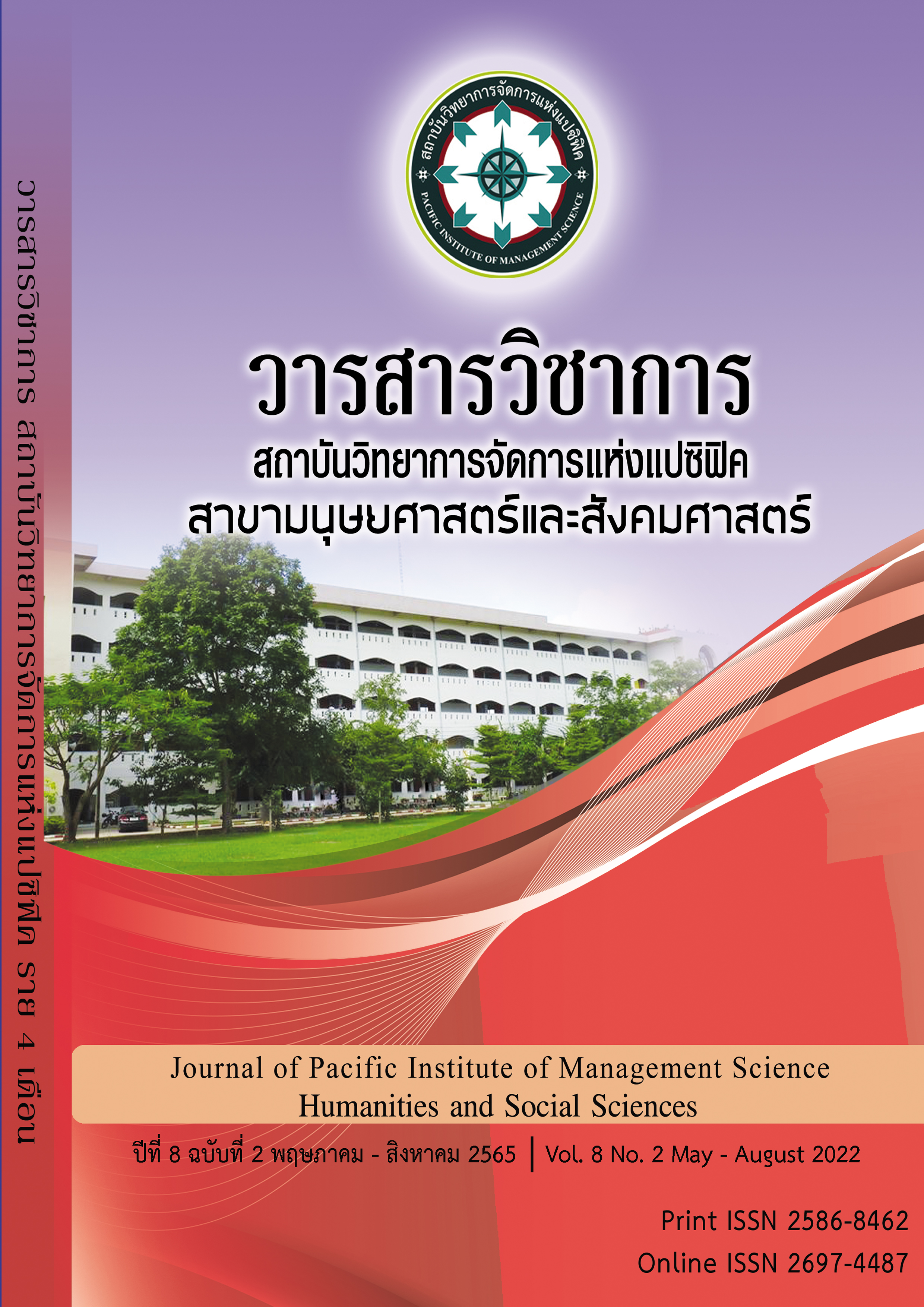Trademark Infringement Problems: A Case Study of Trademark Impersonation
Keywords:
Preventing and suppression laws, Trademarks ViolationAbstract
The objectives of this research was to study (1) History, Conceptual , Meanings, Theory, The purpose of protecting the rights of registered trademark owners (2) Legal measures relating to actions that affect the rights of registered trademark owners under Thai law Compare international law (3) Analyze issues relating to the use of counterfeit trademarks and violations of the rights of registered trademark owners. (4) To suggest guidelines for amending trademark law to truly protect the rights of registered trademark owners.
The research result revealed that (1) History Thailand's laws relating to trademarks include: Trademark Act B.E. 2534 (No. 3) B.E. 2559 (2016), Civil and Commercial Code, Criminal Code, These laws do not have sufficient legal measures to protect registered trademarks. The whole story proves the damage of the abuse. (2) When comparing Thai and foreign laws, It is appropriate to amend the law in accordance with Thailand's current trademark infringement issues. The scope of the violations is clearly defined. To prove damage, as well as to add the definition of the word "trademark" to cover the appearance of the markings of the product. (3) Trademark infringement issues This is due to the lack of clear laws in regard to proving the damage done to the famous trademarks, widely prevalent. The authority to file a claim for infringement must be registered. Problems with damaged remedies The law does not directly address the true damages. (4) Amendments to the Law, amendments to the Trademark Law, B.E. 2534 (1991) In the provenance of trademark reputation, Liability for violations and exclusions that do not violate the use of reputable trademarks is widespread, Proving the damage to famous trademarks is widespread, Damage remedies, Trade Monopoly, Sound and smell registration is a trademark, Actions that degrade trademarks. As well as laying out guidelines for the diagnosis of trademark parody and sentencing. By increasing liability for exporting goods using other people's registered trademarks. To clarify the implementation of the law. This will be beneficial to the case and will benefit law enforcement and the benefits to the country's economy.
References
บรรณานุกรม
คำพิพากษาศาลฎีกาที่ ทป.86/2551. จาก
http://ip.kku.ac.th/ip/IP20%คดี/1.คดีละเมิดเครื่องหมายการค้า.pdf
คำพิพากษาศาลฎีกาที่ 1835/2545. จาก
https://deka.in.th/view-44686.html
ธัชชัย ศุภผลสิริ. (2536). คำอธิบายกฎหมายเครื่องหมายการค้า. กรุงเทพมหานคร : สำนักพิมพ์
นิติธรรม, 2536.
ปณิธาน พูลรักษ์. (2557).“ปัญหาในการคุ้มครองลิขสิทธิ์ในงานอันมีลักษณะเป็นการล้อเลียนผลงานต้นฉบับ.” วิทยานิพนธ์มหาบัณฑิต คณะนิติศาสตร์ มหาวิทยาลัยธรรมศาสตร์.
ปิยวัฒน์ สุภรณ์ไพจิต. (2556).“ปัญหาทางกฎหมายจากการใช้ชื่อทางการค้าหรือเครื่องหมายการค้าของผู้อื่น เพื่อเป็นคำสำคัญในการโฆษณาทางอินเตอร์เน็ต.” วิทยานิพนธ์มหาบัณฑิต คณะนิติศาสตร์ มหาวิทยาลัยธรรมศาสตร์.
สฤษดิ์ เรืองต่อวงศ์. (2553).“ปัญหาการใช้เครื่องหมายการค้าที่เหมือนหรือที่คล้ายกับของเจ้าของเครื่องหมาย การค้าที่ถือเป็นการละเมิดสิทธิของเจ้าของเครื่องหมายการค้า.” วิทยานิพนธ์มหาบัณฑิต คณะนิติศาสตร์ มหาวิทยาลัยรามคำแหง.
Mattel, Inc. v. MCA Records No. CV97-6791, (1998). WL 422641.
Downloads
Published
Issue
Section
License
Copyright (c) 2022 Pacific Institute of Management Science

This work is licensed under a Creative Commons Attribution-NonCommercial-NoDerivatives 4.0 International License.
บทความที่ได้รับการตีพิมพ์เป็นลิขสิทธิ์ของ สถาบันวิทยาการจัดการแห่งแปซิฟิค
ข้อความที่ปรากฏในบทความแต่ละเรื่องในวารสารวิชาการเล่มนี้เป็นความคิดเห็นส่วนตัวของผู้เขียนแต่ละท่านไม่เกี่ยวข้องกับสถาบันวิทยาการจัดการแห่งแปซิฟิค และคณาจารย์ท่านอื่นๆในสถาบันฯ แต่อย่างใด ความรับผิดชอบองค์ประกอบทั้งหมดของบทความแต่ละเรื่องเป็นของผู้เขียนแต่ละท่าน หากมีความผิดพลาดใดๆ ผู้เขียนแต่ละท่านจะรับผิดชอบบทความของตนเองแต่ผู้เดียว







